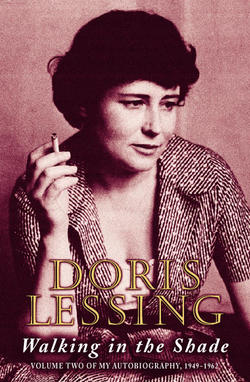Читать книгу Walking in the Shade: Volume Two of My Autobiography, 1949 -1962 - Doris Lessing - Страница 9
INTELLECTUALS AND PROPAGANDA ACRIMONIOUS CONGRESS
ОглавлениеWROCLAW, Aug. 27 – The aggressive opening day’s speech of the Soviet writer Alexander Fadieev, in which he delivered a bitter attack of a political nature on American imperialism and certain facets of western culture, continued to plague the World Congress of Intellectuals to-day.
Mr Fadieev’s speech set the tone for the entire proceedings, which have developed to a large extent into the usual futile acrimonious exchanges of Soviet and western viewpoints. To-day, for example, there was only one speech among nearly two dozen that held to the intellectual rather than the political level established by Mr Fadieev. This was delivered by the French writer M. Julien Benda, who urged that educators and historians should cease to glorify warmongers, ‘whether they won or whether they lost.’ Literature should concentrate on glorifying civilization, justice, and those who oppose destruction.
Otherwise the day was filled by protagonists of one side or the other, and was noteworthy for a strong answer to Mr Fadieev by an American delegate, who said things of the Russians that are ordinarily not said in public in present-day Poland. He is Mr Bryn J. Hovde, director of the New School for Social Research in New York. Mr Fadieev’s speech, he said, if made by a responsible member of a Government, was of a kind that would be made ‘to give propaganda justification to a premeditated military attack.’ Mr Hovde said that Americans thought that, since temptations to imperialism went historically with wealth and power, the Soviet Union was ‘no more immune than we ourselves,’ and when it came to demanding her own way in the world, Americans thought that the Soviet Union took a back seat to nobody.
The British speaker to-day was Professor J.B.S. Haldane, who said he agreed that the main threat of war came from America and the dangers of American imperialism. He criticized the Russians for failing to make available ‘full information on the facts of life in the Soviet Union,’ which he said was necessary in order to influence British intellectuals.
